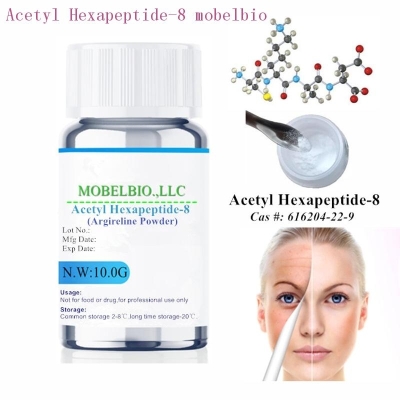-
Categories
-
Pharmaceutical Intermediates
-
Active Pharmaceutical Ingredients
-
Food Additives
- Industrial Coatings
- Agrochemicals
- Dyes and Pigments
- Surfactant
- Flavors and Fragrances
- Chemical Reagents
- Catalyst and Auxiliary
- Natural Products
- Inorganic Chemistry
-
Organic Chemistry
-
Biochemical Engineering
- Analytical Chemistry
-
Cosmetic Ingredient
- Water Treatment Chemical
-
Pharmaceutical Intermediates
Promotion
ECHEMI Mall
Wholesale
Weekly Price
Exhibition
News
-
Trade Service
Qsymia, a new weight-loss drug from vivus, has been in a weak market since its launch, although the company has spent a lot of money on marketing Launched in September last year, it is the first new weight-loss drug in 13 years Even though vivus has invested $45 billion in marketing, sales and administrative expenses, its sales in the first quarter of this year were only $4.1 million As a result, the company's share price fell sharply to $12.41 from $29 A share, the highest The company's major shareholders were also furious, demanding the replacement of the entire board of directors and management The reasons behind the sales Waterloo encountered are complex, and the report attempts to explore the underlying reasons Traditional prejudice of diet pills
Traditionally, most obese people and doctors think that obesity is due to lifestyle problems, which need to be overcome through personal perseverance, rather than a disease that needs to be treated with drugs Dr Barbara traupin, vice president of technology communication and risk management, said: "we must change the perception of obesity across the pharmaceutical industry."
In fact, this transformation is slowly starting Just last month, the American Medical Association officially recognized obesity as a disease The American Society of endocrinologists also introduced weight-loss drugs into diabetes treatment guidelines in April More than a third of American adults are obese, while the other three are overweight But even so, no weight-loss prescription drug can achieve annual sales of $1 billion, which is the lowest bottom line for pharmaceutical analysts to identify a heavyweight product The reason is that most patients have no confidence in diet pills According to the U.S Food and drug administration, only one-third of all people who take weight-loss drugs stick to it for three months, while only 10 percent stick to it for 180 days Eating diet pills may not have a good effect Clinical data show that people who use qysmia lose only 7.8% of their weight after one year, which is equivalent to a 250 pound person who will lose 230 pounds the next year Question of safety
Weight loss drugs have been plagued by safety issues Qsymia has not yet been approved to enter the European market, in part because of security Consumer Reports advise people not to use "fast weight-loss drugs" because "the effects are limited and side effects are troublesome." The most fatal security risk lies in the possibility of congenital malformation The U.S Food and Drug Administration (FDA) requires the drug to be on the shelves of only a few direct mail retail pharmacies, which is inconvenient for doctors and patients Until recently, the FDA agreed to sell qsymia products in retail pharmacies High weight loss cost
Even after the ban is lifted, qsymia has other problems Weight loss products are not covered by Medicare D Only a third of all people who buy commercial insurance get reimbursed, but they usually have to pay $50 a month People who don't have benefits pay $150 a month "Most people don't think it's worthwhile to buy expensive products that don't significantly reduce weight," said Ethan lazorus, a weight-loss expert He also said that about five of his 600 patients were using qsymia Because qsymia is made up of phentermine and topiramate, Dr lazorus said that he sometimes prescribes the two drugs to patients, which are much cheaper and cost only 40 dollars a month In order to cope with this challenge, vivus gives consumers two weeks of free trial of qsymia, and pays $75 in the second month, hoping to see the effect in the first six weeks, and expecting consumers to stick with it Lack of sales staff
It also fell into the awkward situation of shortage of manpower Vivus has only 150 sales representatives, not enough to reach the first-line physician The company's controlling shareholder, first Manhattan Company, has complained that it did not work with large pharmaceutical companies to sell qsymia Top management explained that the company's original goal was all endocrinologists The company is in talks with large pharmaceutical companies and will launch direct advertising this fall It is understood that as of March, 15000 doctors have given qsymia to 40000 patients, and the overall number is still rising.







